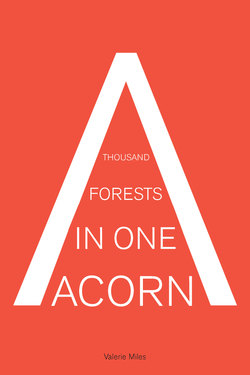Читать книгу A Thousand Forests in One Acorn - Valerie Miles - Страница 10
На сайте Литреса книга снята с продажи.
ОглавлениеAurora Venturini’s career has been defined by the will of a long-distance runner. Born in 1922 in La Plata, Argentina, from a very young age she knew that her relationship with language was different, that she had a very special connection to it, and even as a child she took refuge in words and in reading.
The cousin of her paternal grandmother was none other than Giuseppe Tomasi di Lampedusa, the celebrated author of The Leopard. But the person who really served as her guide, in terms of writing and reading, was her grandfather, Juan Bautista Venturini, with whom she maintained a close relationship. As the years passed, his persistent influence would prove indispensable.
When she was nineteen, having recently earned her teaching certificate, Venturini starting working as a teacher to pay for her studies at Universidad Nacional de La Plata, where she was taking courses in Philosophy and Education Sciences. Seven years later, she had already published numerous books of poetry, and added a profoundly distinct voice to La Plata’s literary history, augmenting its mythical status as “the city of poets.” Critics have often praised her lyricism and the formal mastery of her poetry, displayed in titles like Versos al recuerdo, El anticuario, Peregrino del aliento. In 1948 her book of poetry El solitario won the Premio Iniciación, which the author accepted from the hands of Borges himself.
Even though the radical party reigned in her family, she became a supporter of the man running the country at the time: Juan Domingo Perón. Due to her political affiliation, before long, she began to write speeches for the wife of the governor of the province of Buenos Aires, Elena Caporale. Later on, Elena introduced her to Eva Perón—a woman who changed her life forever. Evita, whom she described as a “force of nature,” enjoyed her company, her sense of humor, and her passion for the thought of Heraclitus. Evita makes frequent appearances in the work of the writer from La Plata.
In 1956, a year after the overthrow of Perón, Venturini left for Paris. She studied psychology at the Sorbonne and became a member of the “existentialist group,” beginning a period of great professional fecundity. She became friends with Jean-Paul Sartre, Simone de Beauvoir, Albert Camus, Eugène Ionesco, and Juliette Gréco. Aurora got married twice: the first time in 1956 to the judge Eduardo Varela and the second in 1993 to historian Fermín Chávez. She has translated and written critical essays on poets like Isidore Ducasse, Comte de Lautréamont, François Villon, and Arthur Rimbaud; her translations of the latter two won her the Iron Cross medal from the French government. She also published collections of short stories (Carta a Zoraida; relatos para las tías viejas), poetry (Laúd, La trova, La Plata mon amour), and traveled throughout much of Europe. In her short stories, the prose is intensely poetic, enriched by frequent autobiographical evocations, as stark as they are candid, and enriched too by the history and politics of those difficult years in Argentina, full of conflict, persecution, and flight.
When she returned to Argentina, she continued to write and publish with small, independent publishers. But recognition came to her in 2007. That year the Buenos Aires journal Página/12 organized and presented the Premio Nueva Novela, and her book Las primas ended up winning. An unsettling story, the committee described it as “A unique novel, extreme, of disconcerting originality, that forces readers to ask themselves many questions books tend to ignore or carefully keep quiet.” Convinced that new literature never depends on a writer’s age but on the thirst for adventure a writer retains, Venturini accepted the award emulating Flaubert: “Las primas c’est moi.”
